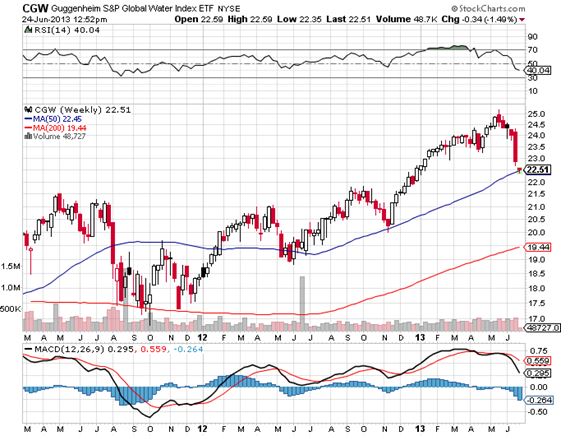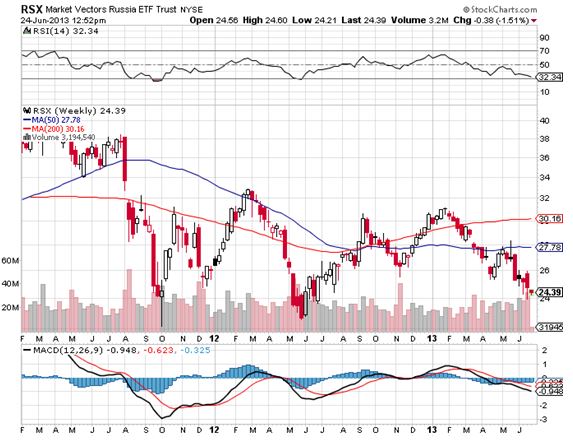I have always considered the US military to have one of the world’s greatest research organizations. The frustrating thing is that their “clients” only consist of the President and a handful of three and four star generals. So I thought that I would review my notes from a dinner I had with General James E. Cartwright, the former Vice Chairman of the Joint Chiefs of Staff, and known as “Hoss” to his close subordinates.
Meeting the tip of the spear in person was fascinating. The four star Marine pilot was the second highest ranking officer in the US armed forces, and showed up in his drab green alpha suit, his naval aviator wings matching my own, and spit and polished shoes. As he spoke, I was ticking off the stock, ETF, and futures plays that would best capitalize on the long term trends he was outlining.
The cycle of warfare is now driven by Moore’s Law more than anything else (XLK), (CSCO), and (GOOG). Peer nation states, like Russia, are no longer the main concern. Budgeting for military expenditures is a challenge in the midst of the worst economic environment since the Great Depression.
Historically, inertia has limited changes in defense budgets to 5%-10% a year, but in 2010 defense secretary Robert Gates pulled off 30% realignment, thanks to a major management shakeup. We can only afford to spend on winning current conflicts, not potential future wars. No more exercises in the Fulda Gap.
The war on terrorism will continue for at least 4-8 more years. Afghanistan is a long haul that will depend more on cooperation from neighboring Iran and Pakistan. “We’re not going to be able to kill our way or buy our way to success in Afghanistan,” said the general. However, the 30,000-man surge there brought a dramatic improvement on the ground situation.
Iran is a big concern, and the strategy there is to interfere with outside suppliers of nuclear technology in order to stretch out their weapons development until a regime change cancels the whole program.
Water (PHO), (CGW) is going to become a big defense issue, as the countries running out the fastest, like Pakistan and the Sahel, happen to be the least politically stable.
Cyber warfare is another weak point, as excellent protection of .mil sites cannot legally be extended to .gov and .com sites. We may have to lose a few private institutions in an attack to get congress to change the law and accept the legal concept of “voluntarism.” General Cartwright said “Anyone in business will tell you that they’re losing intellectual capital on a daily basis.”
The START negotiations have become complicated by the fact that for demographic reasons, Russia (RSX) will never be able to field a million man army again, so they need more tactical nukes to defend against the Chinese (FXI). The Russians are trying to cut the cost of defending against the US, so they can spend more on defense against a far larger force from China.
I left the dinner with dozens of more ideas percolating through my mind, which I will write about in future letters.




